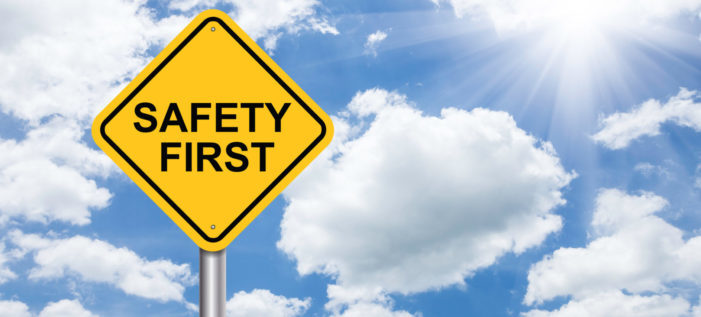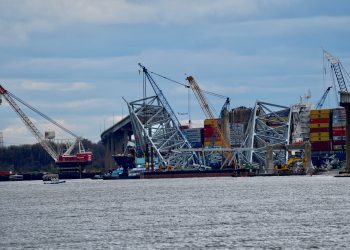While talking at the first SAFETY4SEA Conference in Hamburg, Mr. Mauricio Garrido, President at T&T Salvage LLC, discussed ‘ways to respond when safety fails’ from marine salvage industry perspective, noting that the constantly emerging regulations and the influx of larger and larger ships are challenging safety in the sector.
Safety culture has been around for a long time but we tend to forget about judgment and poor judgment. And you might be the safest company in the world, you might be the safest operator in the world but if you have poor judgment you’re going to have people like the Captain of the TITANIC and the Captain of the EXXON VALDEZ and the Captain of COSTA CONCORDIA from top nations in the world, top training, make judgment errors and create havoc.
Therefore, we need to think about those things as well. Let’s look ourselves in the mirror, we’re not as good as we think. We absolutely live in a bubble, I see it every time we respond to a ship salvage incident we continue to live in a bubble even in the middle of the incident. So, we need to be more proactive and not reactive.
It’s all about safety, I think, even when we talk about LNG and retrofits. What matters is the risk perception; we all look at risk differently. For example, if you think you have a good safety program in place and you’re compliant, I hope, you have a good culture of perception of risk on board. And it needs to be across the board, from the Master to the Chief Engineer to the CEO and the MD. Otherwise, you’re going to end up in what I call: compliance induced complacency and you think you’re safe but you’re not.
And then, when safety fails – because safety does fail, even with the best loss prevention programs in place – and you have an incident, you won’t have the ability to react to it. Then, the real question will be: Do you have the ability to “get up” and continue operations? When you fall off the bike do you stay on the ground? Are you resilient enough to get up? Are you an egg as a company or are you a tennis ball? Do you have the ability to bounce, react and continue operations? Maybe if you have a couple of vessels it’s easier than when you have 60 vessels.
So keep that in mind, as you implement safety procedures, you must be able to recover. Safety is an incomplete cycle, if you don’t have the ability to recover and continue operations. The term resilience is of outmost importance not only for the shipping industry but for every business.
Make sure you have a framework for resilience or you are just trying to make banks, regulators, vettings happy.
Key elements for response & recovery
- Culture of acceptance
- Prevention and safety
- Stakeholder education
- Incident management
Above text is an edited version of Mr. Mauricio’s Garrido presentation during the SAFETY4SEA Conference in Hamburg
View his video presentation here:
The views presented hereabove are only those of the author and not necessarily those of SAFETY4SEA and are for information sharing and discussion purposes only.
About Mauricio Garrido, President, T&T Salvage LLC
 Mauricio graduated from the New York Maritime College with a degree in Naval Architecture, as well as an unlimited Marine Engineer’s license. Mauricio’s experience includes tenure as Naval Architect and Marine Engineer with the technical division of the Military Sealift Command (MSC) responsible for operating more than 150 vessels. He was soon promoted joining the National Transportation Safety Board (NTSB), an independent federal agency responsible for marine casualty investigations and safety oversight. At the NTSB, Mauricio formed part of the investigation teams of major incidents such as the grounding of the EXXON VALDEZ. Since 1990, Mauricio has actively responded to more than 400 major incidents worldwide including ship and cargo salvage, wreck removal and oil pollution cases as Casualty Surveyor, Project Manager or Salvage Master. Since 2008, Garrido has been acting as President of Houston-based T&T Salvage overseeing global emergency response activities. Garrido maintains a close relationship with maritime authorities providing advisory services relating to emergency response and crisis management. Of note, was Mauricio’s participation during the aftermath of Hurricane Katrina, which resulted in more than 1,500 major marine casualties in the US Gulf, where he was commissioned by the US Coast Guard to act as overall advisor and coordinator for salvage operations and the reopening of the Mississippi River. In addition, Mauricio was recently appointed as Adjunct Professor to the Naval War College of Uruguay, acted as advisor to Mexico’s Secretariat of the Navy and regularly lectures on emergency response as part of the Inter-American Committee of Ports (CIP) of the Organization of American States (OAS). Mauricio is a past President and Executive Committee member of the American Salvage Association (ASA). He is also a member of the International Association of Emergency Managers (IAEM), the North American Environmental Protection Association (NAMEPA).
Mauricio graduated from the New York Maritime College with a degree in Naval Architecture, as well as an unlimited Marine Engineer’s license. Mauricio’s experience includes tenure as Naval Architect and Marine Engineer with the technical division of the Military Sealift Command (MSC) responsible for operating more than 150 vessels. He was soon promoted joining the National Transportation Safety Board (NTSB), an independent federal agency responsible for marine casualty investigations and safety oversight. At the NTSB, Mauricio formed part of the investigation teams of major incidents such as the grounding of the EXXON VALDEZ. Since 1990, Mauricio has actively responded to more than 400 major incidents worldwide including ship and cargo salvage, wreck removal and oil pollution cases as Casualty Surveyor, Project Manager or Salvage Master. Since 2008, Garrido has been acting as President of Houston-based T&T Salvage overseeing global emergency response activities. Garrido maintains a close relationship with maritime authorities providing advisory services relating to emergency response and crisis management. Of note, was Mauricio’s participation during the aftermath of Hurricane Katrina, which resulted in more than 1,500 major marine casualties in the US Gulf, where he was commissioned by the US Coast Guard to act as overall advisor and coordinator for salvage operations and the reopening of the Mississippi River. In addition, Mauricio was recently appointed as Adjunct Professor to the Naval War College of Uruguay, acted as advisor to Mexico’s Secretariat of the Navy and regularly lectures on emergency response as part of the Inter-American Committee of Ports (CIP) of the Organization of American States (OAS). Mauricio is a past President and Executive Committee member of the American Salvage Association (ASA). He is also a member of the International Association of Emergency Managers (IAEM), the North American Environmental Protection Association (NAMEPA).






























































